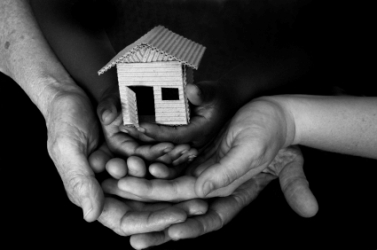
Homeless and Home Again: Personal Reflections
The Trauma and Attachment Report interviewed Tom Regehr of Cast Canada. Tom reveals how his personal experience with homelessness has allowed him to provide support to other helping professionals.
Q: Was there a specific event that led you to become homeless?
A: How I became homeless was not a single event, not a simple process. The core issue was childhood trauma and loss of family due to mental illness. In grade seven, I pushed away all my friends, and quit doing schoolwork. In grade ten, I discovered alcohol, which made it easier to be emotionally absent. I had suffered enough loss and my interpretation of how I dealt with this is that I did not want to have anything left to lose. Before I became homeless I pushed away anyone close to me. It was a combination of my downward spiral with an addiction that naturally pushed people away. I was living a lifestyle of escape.
Q: At the time, what emotions did your living situation evoke?
A: The key to my experience was the massive denial of any emotions. I would not let myself feel anything. In my head I was rationalizing why this university-educated, formerly successful published author was sleeping in a stairwell. When I came in from the streets, I really thought that my homelessness had only been a few weeks in duration, but it had been years. My denial mechanism was like a runaway locomotive; it had both power, momentum, and could not be steered. It took a long time to slow down. The emotion I felt –when years later I allowed myself to feel anything– was terror.
Q: What has your experience taught you?
A: I made some horrible choices but what I learned from being on the streets is that I am an excellent reader of other people. I am able to engage with others.
Q: What inspired your interest in training helping professionals?
A: I have always had a passion for and enjoyed helping other people by assisting them with how they think. When I take the learning that I have had from being homeless, how it has helped me is to give others the mechanisms and tools to make smart choices.
Q: What should a helping professional consider in working with individuals who have experienced homelessness?
A: The first thing I do when speaking to helping professionals is affirm that they do very complex and emotional work. Then I give them just enough insight that they better understand the homeless population and their needs. In general, change needs to be incremental and gentle with an individual who has experienced homelessness. A helping professional needs to be aware that people can only handle small amounts of growth at a time. Exercising caution with “too much, too soon” is important to keep in mind. It is also important for a helping professional to make sure they actually understand what the individual is trying to communicate to them. Homeless individuals need more than housing, or a coat and sleeping bag. They need to regain self-worth. They need to re-learn that they do have value, but if you merely tell them that, their natural denial mechanism will kick in.
Q: Why is it important to approach helping an individual who has experienced homelessness through a trauma-based service?
A: If a helping professional does not take a trauma-based approach, the individual will not learn how to cope with their pain. Denial mechanisms keep people from feeling terror. I work from the perspective that a severed connection to the world is very traumatic; there is a loss of connection to other people.
Q: Based on your experience, what advice would you give to family members and friends of an individual who is homeless?
A: Families and friends should remember that for individuals who want to make a change in their homelessness, like I did, what they need is an open door. Focusing on material things, like giving a sleeping bag, is not enough. The best thing to do is to engage these individuals and let them talk to you.
Q: What would you tell an individual who is struggling with homelessness?
A: My advice would be to begin to accept even a small amount of emotion every day, and not to be afraid to ask for help to make your life just a little bit better.
– Amanda Bartella, Contributing Writer



